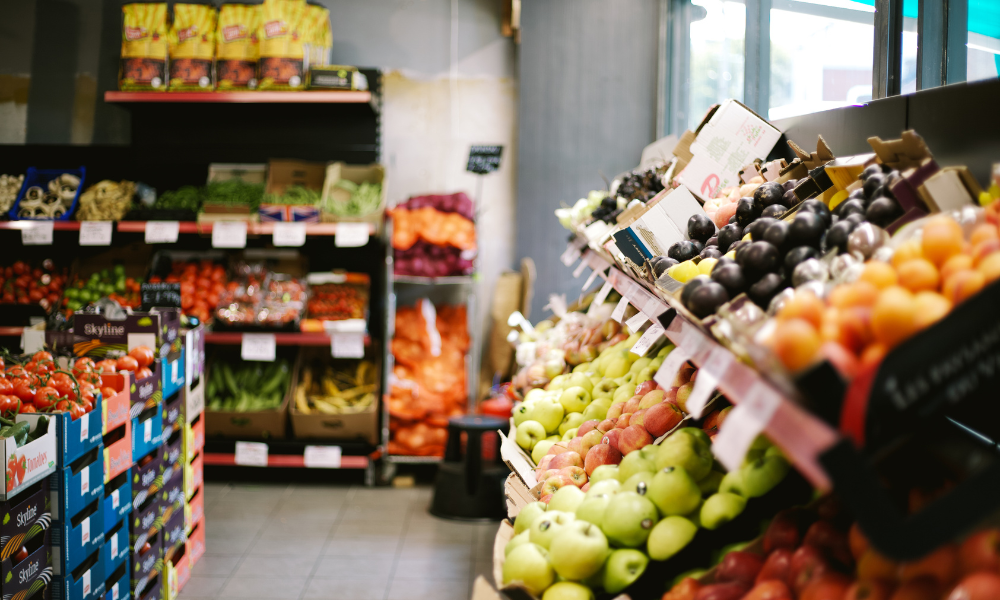
Many of you fellow BLBBs have heard of and tried many if not all the basic money saving tips when it comes to groceries. If you are looking for more ideas to help lower your monthly food budget, look at the list below and give some of these tips a try!
- Start/maintain a food reserve or pantry. When you make your weekly grocery lists, add a few extras of the items you use most often when you find them for a good price. Costs are likely only going to increase so the more you can stay ahead of price increases the better.
- Eat through what you have before going grocery shopping. Make do with what you have on hand for a few days or even a week within reason of course. A lot of us just get in the habit of a weekly grocery trip and go sometimes when we wouldn’t even need to as we have plenty on hand still to make full meals for ourselves/our family. Please keep in mind you and your family member’s health and dietary needs and don’t forget those needs just to save a buck or two.
- Eliminate food waste as much as possible. Rework leftovers so it doesn’t feel like you are eating the same thing repeatedly.
- Track what you eat most often. Keep track of how much you go through in a certain amount of time. That way, when those items go on sale you will know exactly how much you should buy to maximize the savings without leading to waste by buying more than you will go through before it spoils.
- Shop your home first. Take inventory of your pantry/fridge/freezer before meal planning so you can don’t waste what you already have just to go buy it from the store again.
- Create a list of frugal recipes and keep them in a binder to make budget-friendly meal planning quicker and easier. Just be sure to only include meals that you will not only eat but also enjoy. I am working on putting some recipes together and will include them in the recipe section.
- Limit the number of processed foods you buy, not only are these foods not typically good on the budget but they are also not good for your health.
- Prepare well-balanced meals with whole food ingredients. Not only is it healthier as you know what is going into it and can avoid certain ingredients, but it saves you money. Whole foods are typically much less expensive than processed foods. It will also help keep you from over snacking between meals which adds to your grocery bill.
- Shop around! If you buy all your groceries at one store, I can almost guarantee that you are spending more than you need to on groceries. Stores tend to price certain items lower than others, and this varies store by store as to which items are cheaper. By frequenting more than one store, you learn what to buy at each store to maximize your savings. Obviously, you don’t want to go to every store every week as this will increase you transportation costs along with time. With a little planning you can get the items you need for a two-week period or longer and alternate stores each week.
- Shop places you normally wouldn’t and find the deals they offer. Some of the major convenience stores can run sales each week that rival the grocery store. There are also hardware and farm stores that carry food at decent prices. Don’t be afraid to look for food at dollar stores as they can have in-date brand name foods for less than grocery stores.
- Know your prices! Use a price comparison tracker on the items that you buy frequently so you know which store has the best price for each of those items. Bring this will you every time you go grocery shopping (at least until you get the prices down in your head). When another store has an item on sale you will quickly be able to tell if it is a good deal or not.
- Go to a bulk food store for food products that you consume often. Also think about buying in bulk and splitting it with family and friends so you all get the deal but aren’t stuck with 10 years’ worth of rice that will spoil. They usually have options for smaller quantities as well, but the discount may not be as great.
- Find a local bent ‘n dent grocer. They carry damaged as well as close to expiration items at very steep discounts. Often, the entire load of products is declared damaged even though only a few of the items show any signs of damage from shipment.
- Get to know your stores. Find where they place discounted items and check those areas each time you go. Also, make yourself aware of the different sales tags and how to read them at each store. This helps you stay on the lookout for good deals without having to walk each aisle and risk impulse buys along the way.
- I know this one seems to contradict many of the tips I’ve included here but try new foods when you get the opportunity. There could be an inexpensive food that you have avoided in the past either because you did not like it as a kid, the appearance was off-putting, or whatever reason we decide we can’t eat something. I have recently tried again or for the first time some of the foods that I had previously avoided and now I look forward to eating them. This has saved on my grocery bill and added variety to my diet.
- Only buy what you will eat. Don’t get lured in just because there is a great price. It’s not a good deal if you won’t eat it!
- Set a limit to the time of day that you can last eat. I know I used to mindlessly eat later in the evening just out of boredom or because I was watching a movie. By setting a limit for myself, I eliminated unnecessary eating, lowered my food costs, and even lost a few unwanted pounds in the process.
- Eat less! I know it doesn’t sound all that appealing but it will help the total at the checkout line. Most of us have been trained to eat more than is necessary thanks to giant portion sizes in American restaurants. That being said, make sure you are eating enough and getting proper nutrition.
Thanks for looking through the list. Hopefully you find some of the ideas helpful. I know you all have great ideas and tips that have worked for you. Please be sure to include your ideas in the comments below. Happy Saving!!!
